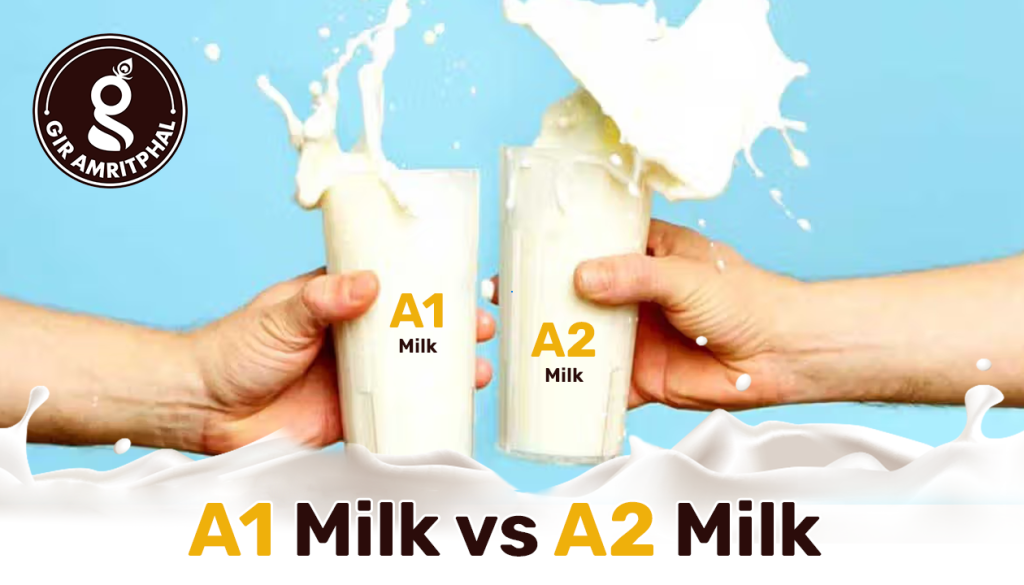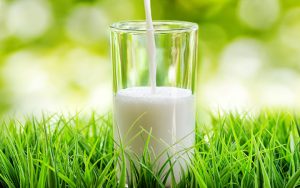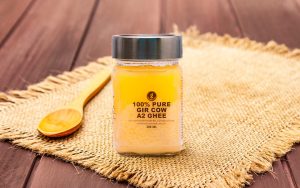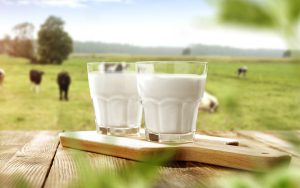A1 milk vs A2 milk has become a hot topic in the world of nutrition, especially as more people begin to question the quality and health effects of the milk they consume daily.
Milk has long been considered a staple of good nutrition, valued for its rich content of calcium, protein, and essential vitamins.
However, not all milk is created equal. In recent years, a growing debate has emerged around A1 milk vs A2 milk, with consumers, nutritionists, and researchers taking a closer look at what these terms mean and how they impact health.
This article will break down the key differences between A1 and A2 milk, explore their health implications, and help you make an informed choice for your family’s diet.
What Is the Difference Between A1 and A2 Milk?
The terms A1 and A2 refer to types of beta-casein proteins found in milk. Beta-casein is one of the primary proteins in cow’s milk and is made up of a chain of 209 amino acids. The difference between A1 and A2 milk lies in the 67th amino acid in this chain.
- In A1 beta-casein, the 67th amino acid is histidine.
- In A2 beta-casein, the 67th amino acid is proline.
This minor difference significantly affects how the protein is digested in the human body. During digestion, A1 beta-casein can produce a peptide called beta-casomorphin-7 (BCM-7). BCM-7 has been linked to several potential health issues, although research is still ongoing.
On the other hand, A2 milk does not produce BCM-7, making it easier to digest for many people, especially those with milk sensitivities.
Origin and Breeds Producing A1 and A2 Milk
The type of beta-casein produced depends on the breed of the cow:
- A1 milk is typically produced by breeds such as Holstein, Friesian, Ayrshire, and British Shorthorn—these are commonly found in Europe, the USA, and Australia.
- A2 milk is naturally produced by desi Indian breeds such as Gir, Sahiwal, Red Sindhi, Tharparkar, and Rathi. These indigenous cows have been part of India’s dairy tradition for centuries.
Because of this, many Indian families and ayurvedic practices have long preferred milk from native cows for its perceived health benefits. At Gir Amritphal, we are committed to sourcing 100% pure A2 milk from authentic Gir cows, promoting health and wellness in every home.
Digestibility and Health Benefits
One of the major reasons behind the growing popularity of A2 milk is its digestibility. Individuals who often experience bloating, gas, or discomfort after drinking regular milk may find relief by switching to A2 milk.
A1 Milk and Potential Health Concerns
The peptide BCM-7, produced during the digestion of A1 beta-casein, is considered to have opioid-like properties, potentially affecting the nervous, endocrine, and immune systems. Some studies have suggested a correlation between A1 milk consumption and:
- Increased risk of Type 1 Diabetes
- Cardiovascular issues
- Autism and schizophrenia (though not conclusive)
- Digestive discomfort
While these links are still under scientific review and more extensive studies are required, the concern has prompted many health-conscious consumers to avoid A1 milk.
Benefits of A2 Milk
A2 milk is often praised for its closer similarity to human breast milk in terms of beta-casein type. Here are a few notable benefits:
- Easier to digest, especially for individuals with mild lactose intolerance
- Anti-inflammatory properties
- May help in maintaining gut health
- Potentially lowers risk of certain chronic diseases
- Free from BCM-7 peptide
Moreover, milk from indigenous cows is believed to contain more nutrients, natural antioxidants, and good fats.
To explore about the top A2 milk producers and available options, check out our detailed guide on Milk Brands in India. This resource can help you discover trustworthy brands offering authentic A2 cow milk across the country.
Cultural and Ayurvedic Perspective
India has a rich dairy tradition that emphasizes the sacred value of native cows and their milk. In Ayurveda, milk from Gir and other indigenous cows is considered “satvik”, meaning pure, nourishing, and spiritually uplifting. It is often used in panchagavya therapies, which include milk, curd, ghee, urine, and dung from desi cows—all believed to have healing properties.
In this context, the discussion of A1 milk vs A2 milk is more than just scientific; it touches upon cultural, spiritual, and ethical values as well.
Market Trends and Consumer Awareness
The global market is increasingly moving towards natural and organic dairy products, and A2 milk is gaining strong traction. In countries like Australia and New Zealand, A2 milk is widely marketed and available. India too is witnessing a surge in A2 milk brands, especially those sourcing from indigenous cow breeds.
At Giramrit Phal, we are committed to promoting pure A2 cow milk sourced from our well-cared-for desi cows. Our mission is not only to provide healthy milk but also to revive the legacy of Bharat’s traditional dairy practices.
A1 Milk vs A2 Milk: Which One Should You Choose?
Let’s recap the major points of comparison in the A1 milk vs A2 milk debate:
| Feature | A1 Milk | A2 Milk |
| Protein Type | A1 beta-casein | A2 beta-casein |
| Digestion | May cause discomfort | Easier to digest |
| Health Concerns | May be linked to chronic diseases | Generally considered safer |
| BCM-7 Production | Yes | No |
| Cow Breeds | European breeds | Indian desi breeds |
| Ayurvedic Value | Not recognized | Highly valued |
| Cultural Significance | Lesser cultural relevance | Deeply rooted in Indian tradition |
If your priority is digestive wellness, traditional values, and natural nutrition, then A2 milk is undoubtedly the better choice.
Final Thoughts
As consumer awareness increases, the question of A1 milk vs A2 milk is becoming more relevant than ever. While more scientific research is underway to confirm long-term health outcomes, many are already experiencing tangible benefits from making the switch to A2 milk. Whether you’re looking to avoid digestive issues, embrace a more holistic lifestyle, or support indigenous farming practices, A2 milk offers a healthier and more sustainable alternative.
At Giramrit Phal, we encourage our readers and customers to make informed decisions about their health. Our A2 milk is sourced from authentic Gir cows, raised in a natural, stress-free environment, and delivered fresh to your doorstep.
Make the switch today—experience the difference of pure A2 milk, and reconnect with India’s ancient, healthful traditions.






